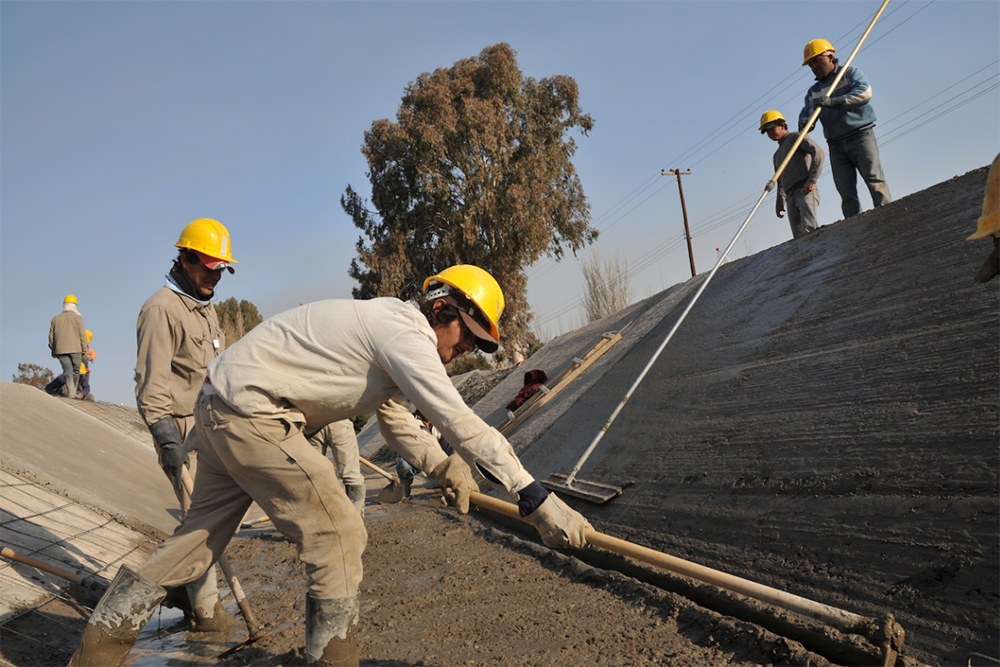In our previous blog of this 3-part blog series, we showed how earlier safeguards involvement in project cycles contributes to improved sustainability performance. In this blog, we illustrate how the use of safeguards helps countries manage environmental and social impacts, and help sponsors implement innovative best practices.

Our research on The Role of IDB’s Safeguards in Promoting Sustainable Infrastructure shows that the application of safeguards undoubtedly contributed to effectively anticipating and mitigating social and environmental risks. Safeguards improved projects in particular by addressing and significantly enhancing capacities to effectively manage environmental and social issues.
In many cases, national regulations were not enough to account for and mitigate project-related environmental and social impacts. In addition, public consultation was not always required for the implementation of infrastructure projects, which introduced risks for confrontations and unanticipated impacts. In these cases, the social and environmental studies required by the IDB filled the gaps left by local regulatory frameworks and set higher standards for future projects. Furthermore, the monitoring programs established by the IDB guaranteed compliance with local norms and IDB standards, promoting a culture of long-term planning and addressing operational challenges with corrective mitigation plans.
Overall, safeguards allowed sponsors to implement innovative best practices, evaluate specific environmental and social impacts, and conduct comprehensive consultation processes. This is a significant finding, as IDB’s sustainability evaluation report focused on the importance of enhancing sponsor and country capacities.
IDB safeguard specialists in particular were fundamental in guiding sponsors implementing the safeguards. Specialists implemented sustainability initiatives on a case-by-case basis that enhanced the initial approach of projects and resulted in improved sustainability performance. In many cases, specialists acted as drivers for sustainable project development in the absence of comprehensive national regulations and strong institutional capacities to manage environmental and social impacts. In fact, of all Envision sustainability credits with a direct contribution by safeguards, approximately 6% to 38% were influenced by specific actions taken by safeguard specialists. Moreover, every Envision “innovate” or “exceed requirements” credit was achieved solely through the efforts of Safeguard specialists.

This graph shows the total number of Envision points that were influenced by initiatives implemented by Safeguard specialists
Safeguards in practice – The case of enhancing regulations and capacity in Uruguay and Chile
The influence of safeguards in enhancing regulations and institutional capacity are best illustrated through the Palmatir Wind Power project in Uruguay, and the Pozo Almonte and Calama Solar Photovoltaic Power project in Chile. Initiatives that exceeded national regulations were included in both projects, which helped them address multiple additional sustainability aspects and achieve a high Envision score. This was reflected by higher performance in Leadership and Quality of Life Envision categories, which would have been much lower without safeguards.
Palmatir Wind Power project, Uruguay
Palmatir was the first wind power project in Uruguay, a country that was not up-to-date with the best practices in the wind power industry. The Environmental Impact Assessment (EIA) requirements in particular were deficient, as impacts related to the transmission line were not covered and public consultation was not required. In addition, weak bird studies were required without comprehensive long-term monitoring initiatives.
The IDB set up workshops to work with the government, taking the opportunity to enhance due diligence and provide recommendations on what should be required in the license process in Uruguay. As a result, the Uruguayan environmental agency updated its policies for what is required for birds’ surveys and improved their regulatory requirements regarding the protection of biodiversity. In addition, the IDB required the assessment of impacts related to the transmission line which affected several properties, and required compensation to those affected. Palmatir facilitated the development of more wind farms in Uruguay and fostered a positive learning curve for the involved agencies.

Pozo Almonte and Calama Solar Photovoltaic Power project, Chile
Pozo Altonte and Calama consisted of the construction and operation of a 25 MW solar photovoltaic power plant and its associated facilities located in Tarapacá, Chile. It was Chile’s largest PV plant at that time and contributed to the development of renewable energy sources in Chile. Developing an Environmental and Social Management Plan (ESMP) proved particularly challenging. The client had complied with local regulations to conduct a basic Environmental Analysis, but the document had some gaps, which were covered through the ESMP. Community participation was not required in the implementation of such projects, so the IDB’s specialist included this aspect in the ESMP to further strengthen the operation.
The client agreed to develop a comprehensive ESMP, improving public consultation, grievance mechanisms, community participation, and identifying social programs. Solar Photovoltaic installations had become a tourist attraction in Atacama, and were frequented by college and scientific groups. The community actively participated in these visits, so that they could benefit from the increased tourism flows and understand the significance of the Photovoltaic installations for visitors. The ESMP also included a waste management program and promoted recycling, traffic management, and health, safety and labor monitoring and auditing. Supervision to maintain compliance with safeguards also guaranteed compliance with local regulations. During project implementation, dialogue with local authorities contributed to detect unidentified impacts, including the excessive use of fresh water to clean mirrors, which is a scarce resource in the area. A plan was developed to implement a dry-cleaning system, thus minimizing water use.

Pozo Almonte and Calama Solar Photovoltaic Power project, Chile
These studies helped set a precedent to guide future regulatory revisions and help sponsors implement similar innovative projects. In general, the implementation of safeguard principles fostered a positive learning curve for executing agencies that will guide prudent project decisions in the future.
Related links:
Press Release: IDB Safeguards help promote sustainable growth, study finds
Part I: Why are safeguards important for sustainable growth?
Part II: Does early safeguards involvement in projects improve sustainability performance?


Leave a Reply